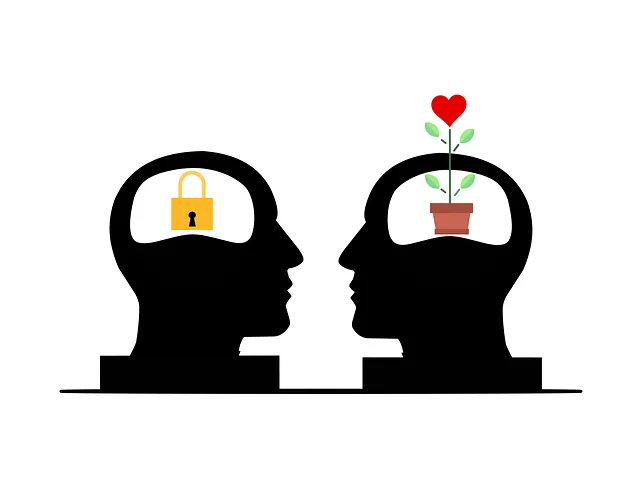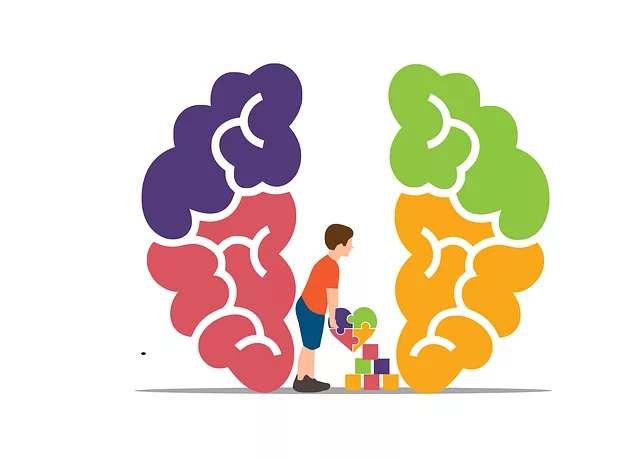Kaiser Permanente mental health center reviews Centennial highlight the need for comprehensive, culturally sensitive self-assessment tools in a fast-paced world. These tools, emphasizing evidence-based methods like Communication and Empathy Building Strategies, empower individuals to manage their mental health holistically. By tracking progress, identifying issues early, and fostering patient-provider communication, these assessments enhance care personalization. The review identifies gaps in current tools, advocating for cultural competency training and inner strength development strategies to improve patient outcomes and tailor support to diverse needs.
Mental wellness self-assessment tools play a crucial role in empowering individuals to take charge of their mental health. As highlighted by Kaiser Permanente mental health centers in Centennial, current assessments often fall short in addressing the diverse needs of patients. This article delves into developing effective self-assessment tools, exploring gaps in existing methods and their impact on patient care. We provide a step-by-step approach to implementation, incorporating feedback from patients and healthcare professionals while ensuring ethical considerations and cultural sensitivity.
- Understanding the Need for Self-Assessment Tools in Mental Health
- – Exploring the current landscape of mental wellness assessment
- – Gaps in existing tools and their impact on patient care as reviewed by Kaiser Permanente mental health centers in Centennial
Understanding the Need for Self-Assessment Tools in Mental Health

In today’s fast-paced world, individuals often face numerous stressors and challenges that can significantly impact their mental wellness. This is where self-assessment tools play a pivotal role in promoting holistic well-being. Similar to how the Kaiser Permanente mental health center reviews Centennial highlight the importance of comprehensive healthcare, these tools empower individuals to take an active role in understanding and managing their mental health. By utilizing evidence-based methods, such as Communication Strategies and Empathy Building Strategies, self-assessment tools provide a personalized approach to mental wellness journaling exercises.
This proactive approach allows people to identify potential issues early on, track their progress over time, and make informed decisions regarding their mental health. The Mental Wellness Journaling Exercise Guidance offers a structured framework for individuals to reflect on their thoughts, emotions, and behaviors, fostering self-awareness and encouraging positive changes. Ultimately, these tools serve as valuable resources for enhancing communication between patients and healthcare providers, ensuring that mental wellness support is tailored to each individual’s unique needs.
– Exploring the current landscape of mental wellness assessment

The current landscape of mental wellness assessment is a complex and evolving field, with various tools and methodologies employed by healthcare professionals across different settings. One notable player in this space is the Kaiser Permanente mental health center reviews Centennial, which offer valuable insights into effective assessment practices. These reviews highlight the importance of comprehensive approaches that consider not just symptoms but also the individual’s overall emotional well-being and cultural background.
The development of self-assessment tools plays a crucial role in empowering individuals to take charge of their mental health. With the help of resources like Crisis Intervention Guidance and Cultural Sensitivity in Mental Healthcare Practice, these tools are designed to be accessible and tailored to diverse populations. By integrating emotional healing processes into the assessment framework, professionals can ensure more holistic care, catering to the unique needs of each client beyond mere diagnosis.
– Gaps in existing tools and their impact on patient care as reviewed by Kaiser Permanente mental health centers in Centennial

The Kaiser Permanente mental health centers in Centennial have reviewed their existing self-assessment tools and identified significant gaps that impact patient care. Many current assessments fail to account for individual cultural backgrounds and unique experiences, limiting their effectiveness, especially within a diverse population. This lack of cultural sensitivity in mental healthcare practice can lead to misdiagnoses or inappropriate treatment plans. For instance, what works for an individual from one cultural context might not resonate with someone else, emphasizing the need for tailored approaches.
Furthermore, the reviews highlight the importance of healthcare provider cultural competency training. Training programs focused on improving cultural understanding among mental health professionals can enhance patient outcomes. Incorporating strategies that support inner strength development is another key area suggested by the centers. By addressing these gaps and integrating culturally sensitive practices, self-assessment tools can better serve the diverse needs of patients, ensuring more personalized and effective care.
Mental wellness self-assessment tools play a pivotal role in enhancing patient care, as highlighted by Kaiser Permanente mental health center reviews in Centennial. By addressing current gaps and incorporating user feedback, these tools can revolutionize how individuals assess and manage their mental health. A well-designed self-assessment not only improves access to care but also fosters more personalized and effective treatment plans, ultimately leading to better outcomes for those seeking support.






